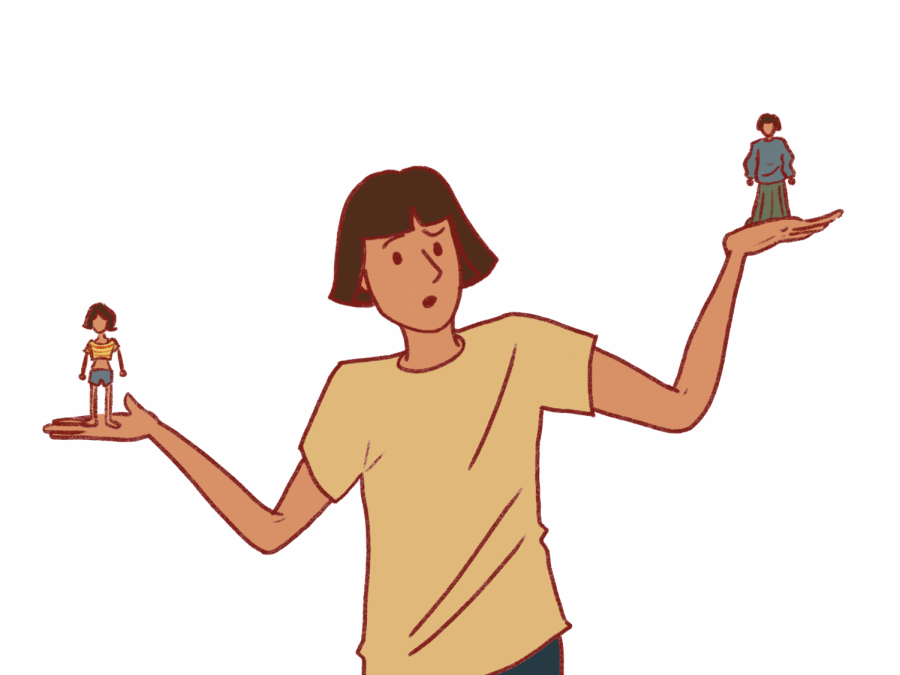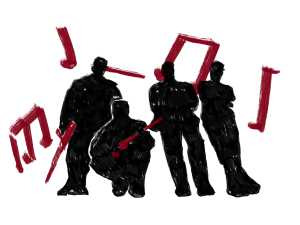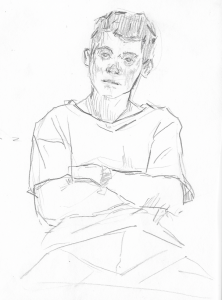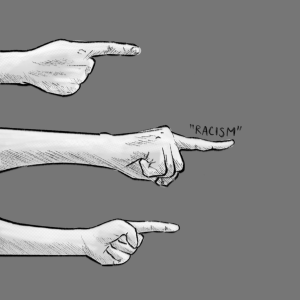Clothing Is Not the Problem—Misogyny Is
November 30, 2021
To sexualize is to qualify something as sexual in character or quality, often negating other qualities of the subject. Similarly to objectification, the problem lies in the removal of the subject’s choice in the matter. It is no secret that in American pop culture, women are sexualized at significantly higher rates than men, adding to the many layers of rape culture. However, women are also often blamed or held responsible for the actions or perceptions of others depending on the revealingness of their clothing. From being told to cover up, to wanting to stride confidently in their bodies, there isn’t a perfect or easy answer.
The Register Forum approached CRLS students, asking three questions about dress codes, social pressures dictating what people should wear, and the “she was asking for it” argument that has been circulating more than ever since the #MeToo movement. Many students held initial interest, but the topic itself is so highly contested that multiple individuals walked away when sexualization was mentioned.
Two CRLS seniors, Herani Hiruy and Yasimen Yohannes, described to the Register Forum a feeling of conflict between what they wanted to wear and how their families, or even strangers walking down the street, might react to their outfit choices. When asked about revealing clothing, Yohannes answered, “I see it as empowering when I see other women wearing whatever they want in whatever setting,” as they are “breaking down walls and barriers.”
The struggle between feeling safe and confident creates a constant hypervigilance, internalizing in many the idea that women’s value exists solely in appearance.
Jakwan Hossain ’22 expressed to the Register Forum, “I don’t think that clothing should dictate treatment or respect.” These students represent the mindset that treatment, specifically for women, should not be dictated on their appearance. This is easier said than done, especially when women’s safety is concerned.
The overarching question was “should women dress more modestly for their own safety, and is that their responsibility?” The general consensus was “no,” but Aléx Leith ’22 shared with the Register Forum that “unfortunately in the world we live in sometimes that can be the case.”
The feeling of discomfort in certain clothing comes from the sexualization and objectification women receive daily on the basis of attire. When wearing revealing clothing, Yasimen stated, “I feel confident until a guy comments,” describing how her comfort level can quickly become externalized.
While everyone interviewed agreed that all people deserve respect and dignity, regardless of their clothing, this isn’t a principle that everyone practices. Ms. Caroline Berz, a CRLS Women and Gender Studies teacher, reiterated to the Register Forum that women should be able to dress as modestly or as revealingly as they want, since in today’s society, women are unfortunately sexualized either way. The struggle between feeling safe and confident creates a constant hypervigilance, internalizing in many the idea that women’s value exists solely in appearance. The burden of protecting oneself from a young age is simply misplaced, and uses women as scapegoats while stifling their self-worth and self-expression.
To solve this issue we must address the root, which is not clothing, but the mindset society employs.










